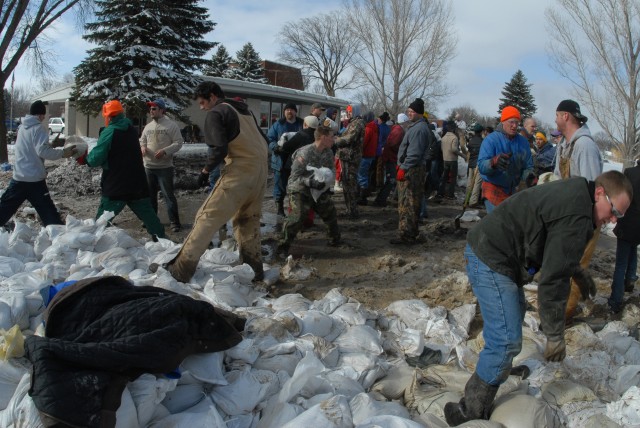
WASHINGTON (Army News Service, Sept. 22, 2009) -- As National Preparedness Month draws to a close, the administrator of the Federal Emergency Management Agency says the best way for Soldiers to contribute to emergency response is to prepare themselves and their families for disasters before they happen.
"To be prepared and to respond effectively to a disaster, each of us has to take responsibility to do our part and make sure our families are ready and that we are prepared so that we can do our mission," said William Craig Fugate, administrator of the Federal Emergency Management Agency.
Fugate said there's several ways that families can be prepared for a disaster. A good starting point, he said, is reading either the FEMA Web site at www.ready.gov, or the Army Web site at www.ready.army.mil. Both Web sites highlight having effective family communication plans for times of disaster.
"We have to make sure our plans, our communications plans, are in place, so that no matter where we are at, our family knows what the plan is and we are able to do the things we need to do as well as perform our functions when our country needs us," Fugate said.
Plans should cover what happens if families are together when disaster strikes, and what should happen if families are not together -- when parents are at work and kids are at school, for instance.
"What happens if a disaster happens when you are deployed, you are at work, or you are on training'" Fugate asked. "Does your family know what to do' I think we tend to look at our families, that when a disaster strikes, we are going to be together -- it may not be."
Military families and military commanders must also work hand-in-hand with local civilian communities on emergency and disaster preparedness, Fugate said, because many times, military families are a part of the very communities they serve.
"I think it is important that base commanders look at the threats in their communities, look at their community emergency management plan, and build that team between themselves and their civilian counterparts," Fugate said. "Our dependents and our families are not always on base -- they oftentimes live in the communities we serve."
When Soldiers have emergency plans in place for themselves and their families, they'll be more ready to participate in providing emergency support to their communities during floods, blizzards or other kinds of disasters that Army may be asked to provide support on, Fugate said.
The military participates in disaster assistance in the United States through U.S. Northern Command, when called upon by FEMA to participate.
"The Army is a key component of that," Fugate said. "The better prepared the base installations are, and the Soldiers that live in those communities are to take care of themselves and their families, but also support the local community, the better off we are to perform our primary missions."

Social Sharing